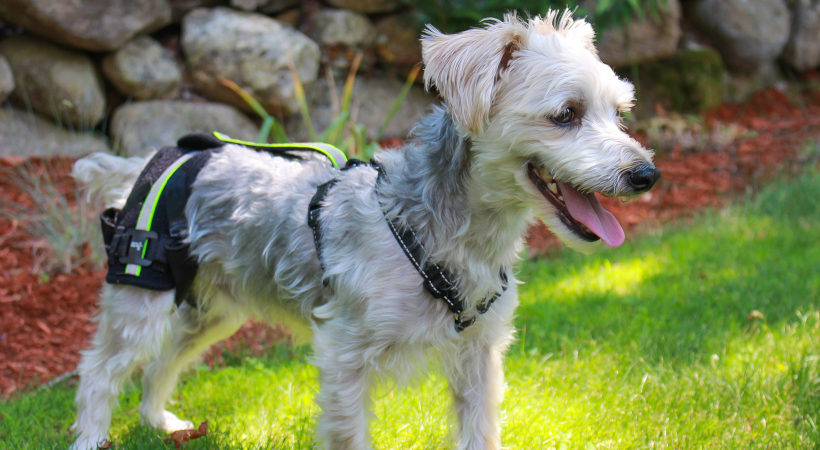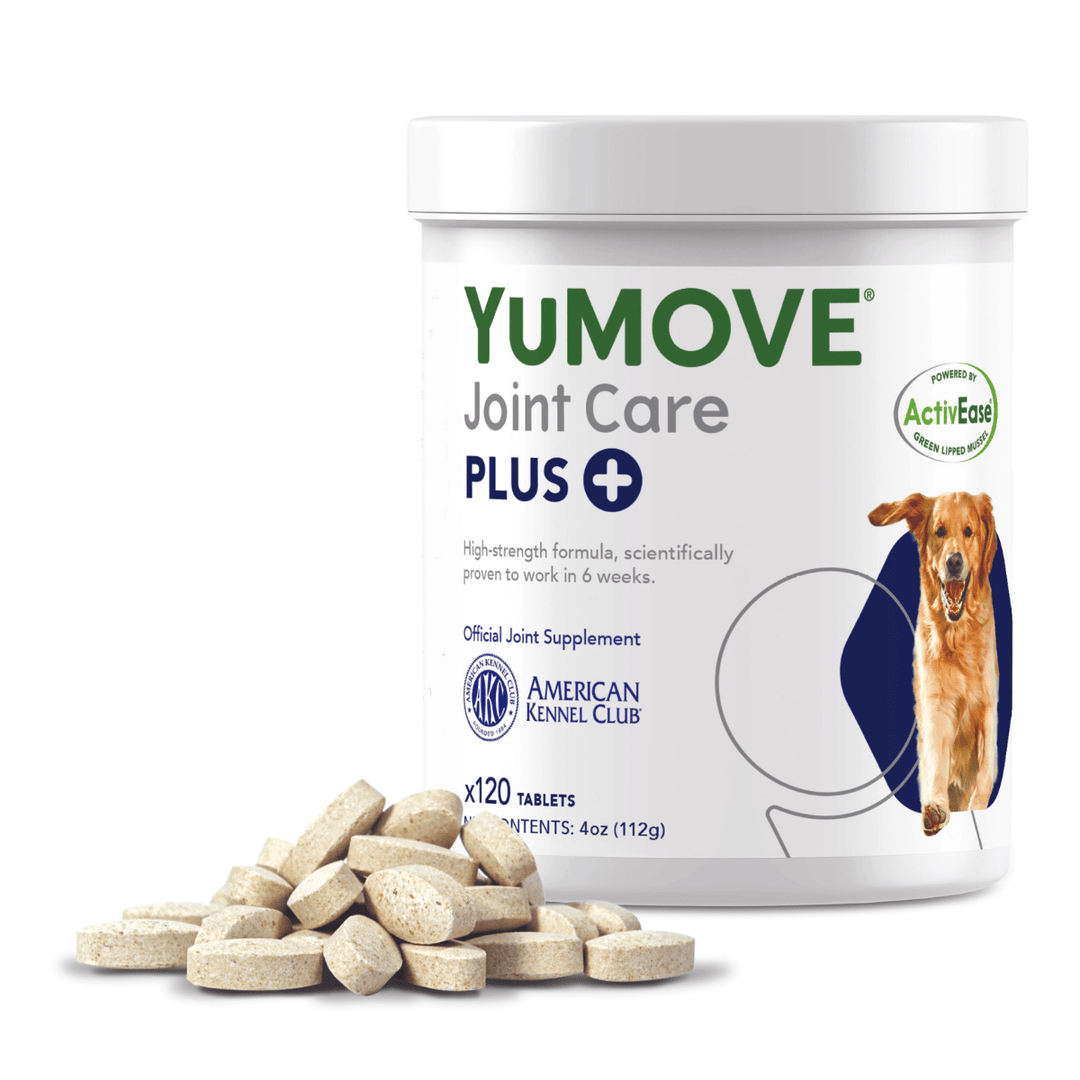- May 31, 2023
Canine Hip Solutions: How to Decide Between a Hip Brace and a Wheelchair

When it comes to hip pain and how to help keep your dog with dysplasia active, there is no one way to treat your dog. Since hip dysplasia is hereditary, a dog’s symptoms will vary depending on age, severity, and how far it has progressed. A multi-modal approach is often the best way to keep your pet active. This could mean physical rehabilitation, monitoring a dog’s weight, daily joint supplements to promote joint health, and even mobility aids to support the joint.
The Right Hip Solution for Your Dog
Early Stages – Minimal impact on pet’s mobility

Young dogs and those in the earliest stages of hip dysplasia should focus on supporting joint development and keeping the hips healthy. At this point, there is very little noticeable impact from their hip dysplasia; the dog can stay active and walk without any discomfort. However, since dysplasia is progressive, simple changes such as avoiding strenuous exercise, keeping your puppy at a healthy weight, regular vet visits, and giving your dog a daily joint supplement are beneficial at this stage.
The best joint supplement for a young, active, or growing dog will aid active joints, support joint structure, and help support overall mobility. Look for a joint supplement that combines the following ingredients:
- Green Lipped Mussel that provides Omega-3 fatty acids to ease occasional joint stiffness.
- Glucosamine and N-acetyl-D-Glucosamine provide essential building block components of cartilage to help support and maintain joint structure.
- Hyaluronic Acid helps to lubricate and cushion the joint.
Dog hip and joint supplements are beneficial at any life stage, from young to adult to a dog’s senior years.
Best Early-Stage Hip Solution for a Dog: A high-quality dog joint supplement
Mild to Moderate Hip Dysplasia – The dog shows signs of discomfort but is still mobile.

Dogs with mild to moderate hip dysplasia are still active. Although dogs at this stage may be favoring one hind leg over the other, they may have slight changes in their mobility. For example, your dog may be slower to rise off the ground, but the important thing is that they are still able to walk and stand without assistance.
A lightweight neoprene hip support wraps around the hip joint to combine a sense of lift in the leg with compression to ease discomfort and make it easier for your dog to stay active. Any dog unable to stand or bear weight on their back legs is in more advanced stages and will need a dog wheelchair for support. Once a dog has more significant mobility loss, they are past the point of canine hip support helping them. Hip braces are best for dogs who can still walk and support themselves on all four legs.
Best Mid-Stage Hip Solution for a Dog: Hip-EEZ Hip Support
Advanced Stages – Dog struggles to walk & stand

When a dog has progressed into a more advanced stage of mobility loss, it will show visible signs of hip pain, and its gait will have changed. Here are the signs that your dog’s hip dysplasia has advanced to the point where they require a wheelchair:
- Dipping of the hips when they walk- the dog’s hips may slowly lower towards the ground as they walk.
- The dog may have an arched back with their hind end pointing downwards.
- No longer able to stand up or shows significant difficulty getting its back legs under them to stand.
- Dog is struggling to walk without pet parent’s assistance.
Once a dog is exhibiting any of these signs, a hip support is not going to benefit them. For dogs struggling to walk and stand on their own, a dog wheelchair is the best option. A wheelchair supports the hind end to encourage them to walk. An added benefit of a cart for pets with bad hips, is that the wheelchair reduces the weight the dog places on its back leg, but still allows them to use their hind legs and get exercise. A mobility cart is a great way to keep your dog active and prevent unnecessary muscle loss.
Best Advanced Stage Hip Solution for a Dog: Walkin’ Wheels dog wheelchair
Related Articles:
Tags
What do you think?
Related Articles

New Puppy Checklist: Gear You’ll Need for Your New Dog
Getting a new puppy is really exciting, but before you welcome them home, it’s important to prepare your space for them. Since puppies need a

How Big Do Mini Poodles Get? Vet Reviewed Average Weight & Growth Chart – Dogster
The information is current and up-to-date in accordance with the latest veterinarian research. Learn more » When you buy a Miniature Poodle, you might not

Can Police Dogs Smell Nicotine? Vet Verified Facts & Info – Dogster
The information is current and up-to-date in accordance with the latest veterinarian research. Learn more » While cigarette sales have been declining steadily for decades,

How Old Is 5 in Dog Years? Vet-Approved Guide to Each Size of Dog – Dogster
The information is current and up-to-date in accordance with the latest veterinarian research. Learn more » A common method for calculating a dog’s age is

